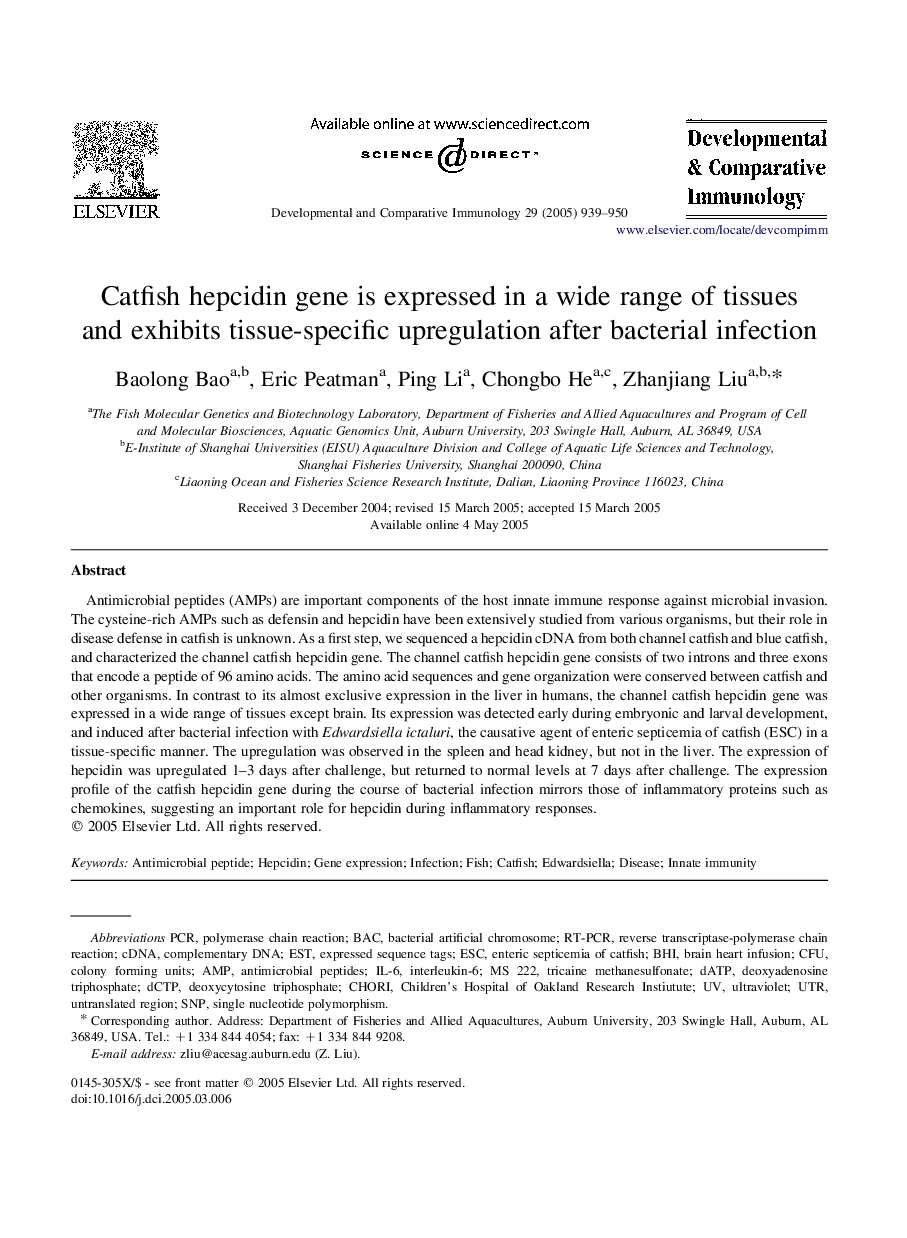| Article ID | Journal | Published Year | Pages | File Type |
|---|---|---|---|---|
| 8978164 | Developmental & Comparative Immunology | 2005 | 12 Pages |
Abstract
Antimicrobial peptides (AMPs) are important components of the host innate immune response against microbial invasion. The cysteine-rich AMPs such as defensin and hepcidin have been extensively studied from various organisms, but their role in disease defense in catfish is unknown. As a first step, we sequenced a hepcidin cDNA from both channel catfish and blue catfish, and characterized the channel catfish hepcidin gene. The channel catfish hepcidin gene consists of two introns and three exons that encode a peptide of 96 amino acids. The amino acid sequences and gene organization were conserved between catfish and other organisms. In contrast to its almost exclusive expression in the liver in humans, the channel catfish hepcidin gene was expressed in a wide range of tissues except brain. Its expression was detected early during embryonic and larval development, and induced after bacterial infection with Edwardsiella ictaluri, the causative agent of enteric septicemia of catfish (ESC) in a tissue-specific manner. The upregulation was observed in the spleen and head kidney, but not in the liver. The expression of hepcidin was upregulated 1-3 days after challenge, but returned to normal levels at 7 days after challenge. The expression profile of the catfish hepcidin gene during the course of bacterial infection mirrors those of inflammatory proteins such as chemokines, suggesting an important role for hepcidin during inflammatory responses.
Keywords
RT-PCRdeoxycytosine triphosphateUTRMS 222Enteric septicemia of catfishEdwardsielladCTPdATPBHIAMPIL-6CFUcDNAComplementary DNABACESTUltravioletInnate immunityinterleukin-6Gene expressionDiseasetricaine methanesulfonatebrain heart infusionExpressed sequence tagsESCdeoxyadenosine triphosphateInfectionFishuntranslated regionHepcidincolony forming unitsReverse transcriptase-polymerase chain reactionpolymerase chain reactionPCRSingle nucleotide polymorphismAntimicrobial peptideAntimicrobial peptidesSNPbacterial artificial chromosomeCatfish
Related Topics
Life Sciences
Biochemistry, Genetics and Molecular Biology
Developmental Biology
Authors
Baolong Bao, Eric Peatman, Ping Li, Chongbo He, Zhanjiang Liu,
